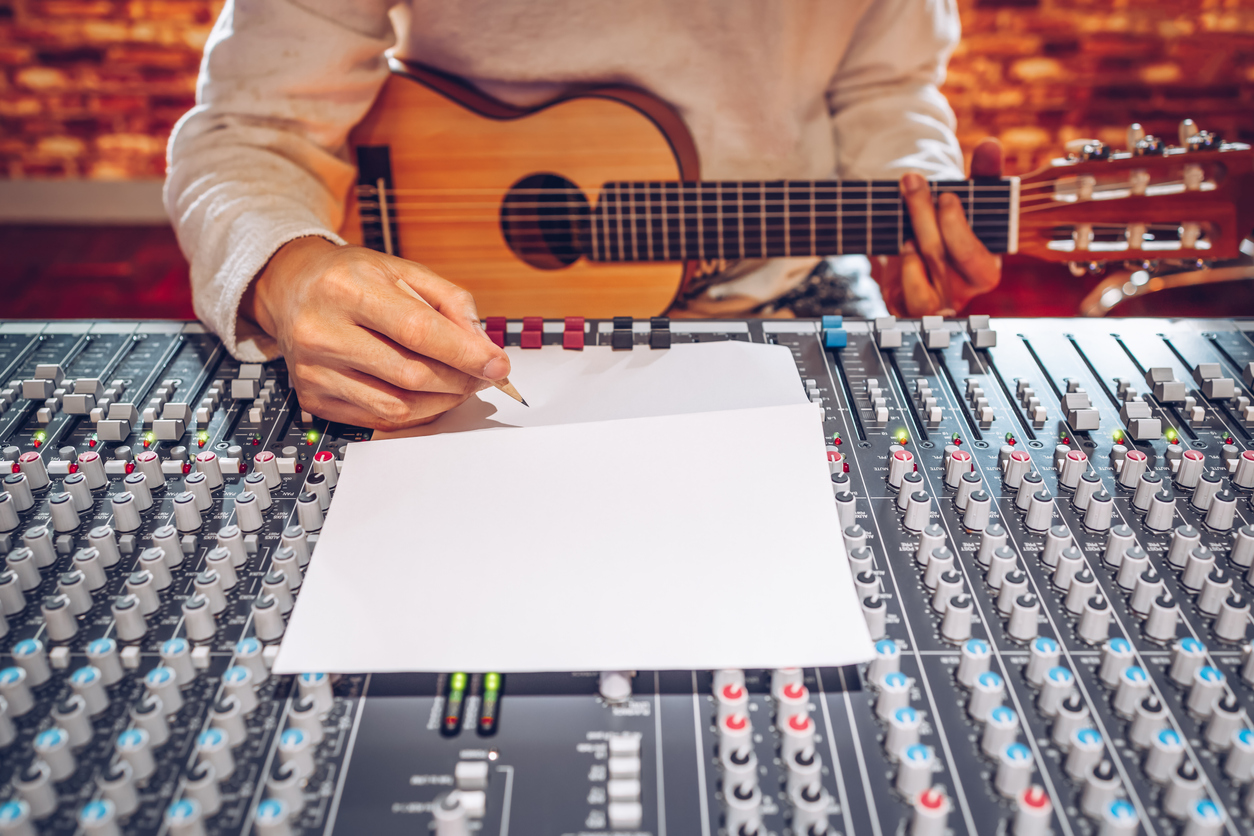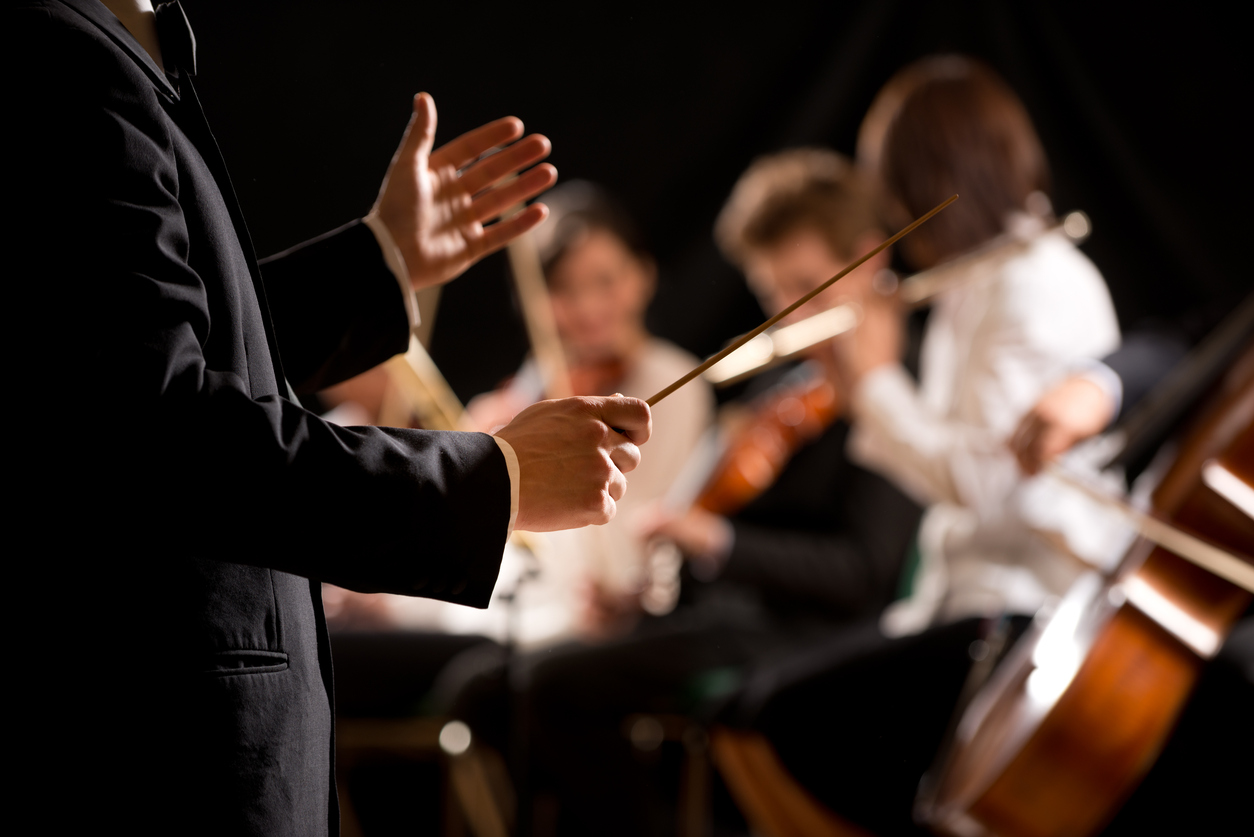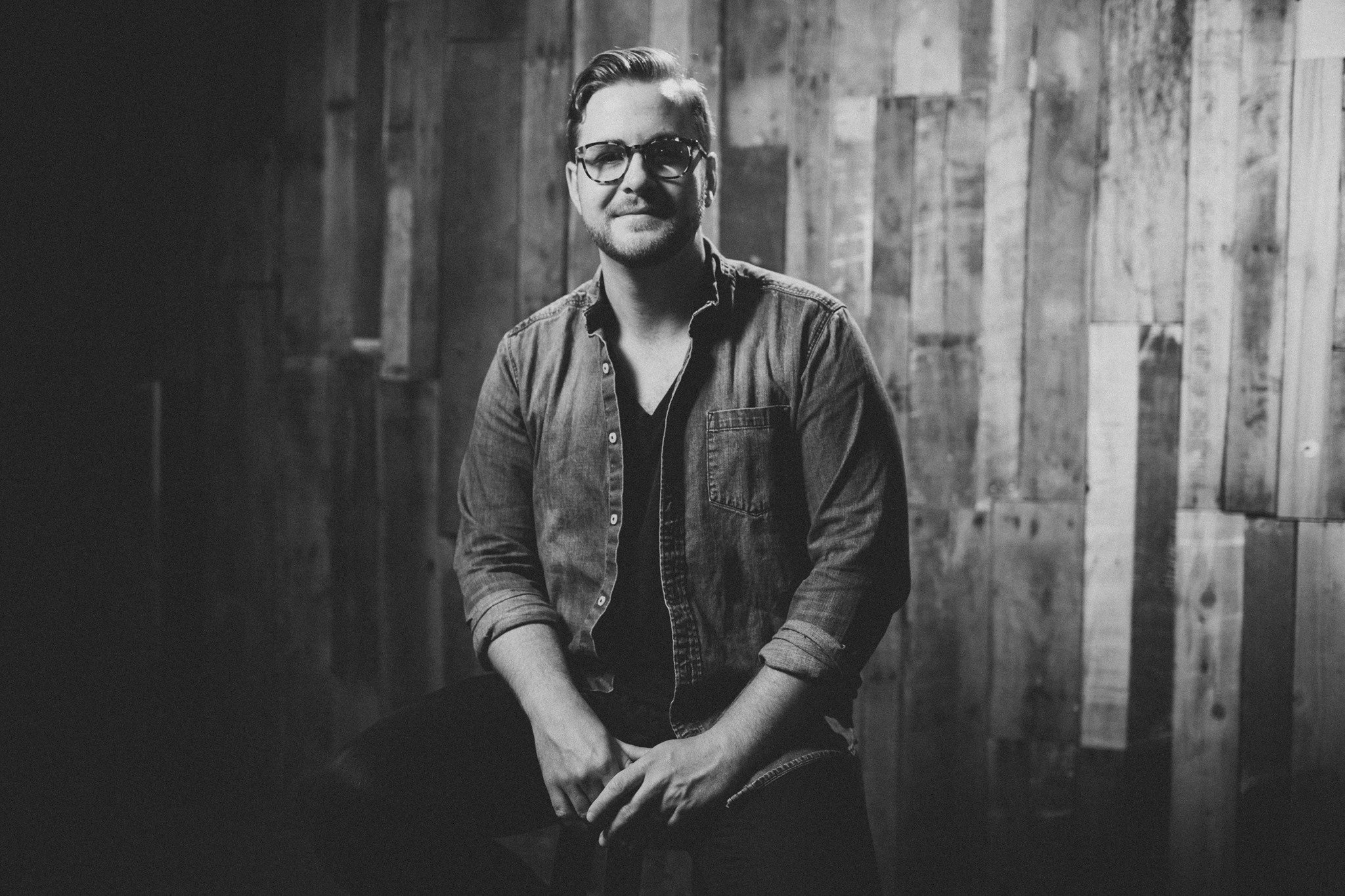Are you thinking it’s time to take your songwriting to the next level?
You’ve probably been writing intuitively for a while, but you’d love to become more of an expert at composing music.
Maybe you’ve been honing your musical skills, experimenting with new approaches in your home studio, and working to fill in the gaps in your knowledge of music theory.
You’d love to turn some of your compositions into something that can be played on the radio, on TV, or in films. You imagine your music in video games or even performed by a major artist on a big stage.
But it’s easy to feel intimidated, especially if you don’t have a formal music education.
You might think you don’t have the musical skills, talent, or theory knowledge to be a successful composer — and you wonder if those gaps will hold you back.
You could be a beginner who doesn’t know where to start or an intermediate writer who’s ready to see if you have what it takes.
Whatever your situation, this post will help.
What is Music Composition?
The terms songwriting and composing are often used interchangeably, but songwriting usually refers to writing both music and lyrics. Composing refers specifically to writing music.
If you write music, you’re a composer — whether you’re writing for the masses or just for yourself.
So what does it take to compose music?
To start, you need at least an intermediate level of musical knowledge and skill and a basic understanding of music theory.
You should have some voice training and/or play at least one musical instrument. Preferably you’ll also know how to read musical notation.
Beyond that, you should love music, have a desire to create, and be committed to the process (because the journey can take a while.)
Most of all, though, you should have a desire to keep learning and growing.
If this sounds like you, you’re in the right place.
The first step is to assemble your tools.
What Tools Do Composers Need?
You need some basic tools to get started with music composition, but just like your home studio recording setup, you can start with the essentials and add more later if you need to (as you gain experience.)
Your instrument
Piano and guitar are, of course, two of the more popular choices for composing, but when it comes to instruments, the more the merrier.
As a matter of fact, using a different instrument than the one you’re most comfortable with can help you come up with some really unique ideas.
You don’t need to be an expert on everything — and don’t forget, your voice is also an instrument!
Recording devices
You need something to capture your ideas, whether it’s your phone, tablet, laptop, a physical notebook, or some combination.
Whatever you do, make sure you always have something handy when inspiration strikes, and ideally use software that will help you keep all your ideas and works in process in one place so you can find them when you need to.
Notation software
While you can capture your ideas with a pencil and staff paper, you’ll soon want to get your music into digital form. You’ll need notation software for producing your sheet music.
Some of the more popular packages are Finale, Sibelius, and Muse Score (an excellent free option.)
A Digital Audio Workstation (DAW)
Next up, you’ll need software for recording, enhancing your tracks, mixing, and mastering. I like Logic or Garage Band for Mac because they allow you to be creative without having to have a lot of technical knowledge.
There are also many good options for PC, including ProTools and FL Studio. Check out this post for an in-depth look at setting up your home studio.
Fortunately, there are loads of resources to help you learn all of these tools. Aside from the tutorials and other resources that software provides, you can look for courses, online communities and forums, YouTube videos, and more.
Most of all, just get in there and start experimenting. Start simply, master the skills that you need for basic compositions, and learn as you go.
Who should compose music?
Not everyone who’s interested in songwriting wants to compose music. You may want to specialize in lyrics or write to tracks and that’s great.
But if you’re serious about pursuing songwriting as a career and you’re at all interested in expanding your value as a collaborator, then by all means start learning and gaining confidence in writing music.
No matter where you are now, if you start today you’ll be far ahead of the game a year from now.
That said, if writing music is not something you imagine you’d enjoy, or if the idea seems overwhelming, then don’t put pressure on yourself. You can collaborate with other writers in order to get your work out there.
Here are some of the traits of successful composers.
Mindsets to Help You Learn to Compose Music

If you can say “yes” to most of these points, or if you’re willing to grow into them, you have the ingredients to being a successful music composer.
Start where you are.
No one composes an amazing, full symphony on their first attempt. If you’re a brand new composer, with beginning to intermediate musical skills, embrace that.
You can learn to create good music even with basic skills, and with time (and the right guidance and support) you’ll only get better.
Take small steps.
Regardless your musical skill, don’t start out trying to write for a full orchestra or 9-piece horn band. Instead, start with just one instrument.
As you get comfortable, you can write several guitar or piano parts, for example. After that, you can start adding other instruments.
Start and finish simple projects first. You’ll learn lots and become more confident with each piece.
Be willing to practice.
Musicians sometimes view practice as a dirty word. But try not to think of it as a war you have to wage with yourself.
Instead, think of practice as a way of life — the same way doctors, lawyers, and other professionals practice.
Envision yourself as a pro who lives and breathes music because you love it, not as a student who has to be bribed with an allowance or cookies to play their instrument for half an hour every day.
Be in it for the long haul.
Like so many other music-related skills, you will improve the more you stick to it. But even beyond growing your skills and knowledge, it’s important to create a catalog (or even a personal legacy.)
Success in music is a numbers game, so you only improve your chances the more music you create and put out there. Don’t get caught up in the success of any one composition. Do your best work and keep doing it.
Don’t expect perfection.
Perfection is a real creativity and progress killer. We often come into a project with an idea of how we’d like it to sound, but find that in the end it doesn’t turn out exactly the way we’ve envisioned.
That’s okay. It’s part of the creative process. Keep working to make every composition the best you can by all means, but don’t allow perfectionist tendencies to keep you from sharing your work.
Experiment.
Approach every new piece you write with a playful attitude. Try new things. No effort is wasted and if a part doesn’t work out in one song, you can always change it or use it in a different song.
Ideas are limitless. Don’t be afraid to take chances or switch things up. You’ll be surprised with what you can come up with.
Learn constantly.
Commit to having a growth mindset. Writing music is a lifelong pursuit, not an end result. The longer you stick with it, the more you’ll learn about music, the industry, and composing.
You’ll also learn other instruments, master new technologies, and work with many talented people. If continuous learning excites you, you’re in the right place!
Collaborate.
Always be on the lookout for writing partners, collaborators, or co-writers. Network in person with the musicians in your local community or in cities you travel to.
Check out open stages or songwriting circles, and join free or paid online songwriting communities. Don’t think that you have to go it alone. Your opportunities multiply with every genuine personal connection you make.
Find support.
A good teacher or mentor can help you fill in gaps in your knowledge and learn much more quickly than you would on your own. So again, join online communities or forums.
Sign up for (legit) composition and songwriting contests and challenges. Attend music and composition camps. Ask your teachers or fellow musicians if they know anyone who can help. In a nutshell, network.
Now that you’ve got the right mindset, let’s dive into the process of composing music.
How to Compose a Song in 10 Steps
These steps are roughly in order from the first thing you should do to the last, but the truth is, successful composers will do many of these things simultaneously.
As long as you’re writing music, you will never really reach the finish line. The key is to build a strong foundation and then keep building on it.
Step 1: Listen and Analyze Everything
Be open to exploring all different genres of music, including classical, folk, or rock. And don’t shy away from more obscure styles like psychobilly, Viking metal, doom blues, conscious hip-hop, or chill step.
Inspiration truly comes from anywhere. Broadening your musical knowledge will only give you more ideas and more tools for your writing toolbox.
But also, don’t stop listening. Learn to listen critically and analyze what you’re hearing.
Discover what you like and don’t like and why.
Also, learn to set your personal tastes aside. Try to see the good in everything. Why is some music popular? Why is other music not so popular? What works in a certain composition? What doesn’t work?
And always be ready to capture your ideas and inspiration.
Step 2: Learn an Instrument (or Two… or More)
Most professional songwriters play an instrument. The good news is you don’t have to be incredibly proficient in the beginning, especially if you are able to collaborate with other more accomplished musicians.
Instead, focus on learning. Once you know the language of music and have a foundation in the basics, it will be much easier to learn other instruments. Each one will propel your creativity in new directions.
Step 3: Study Music Theory and Sight Reading
The better you are at reading music notation or understanding the Nashville numbering system (for pop music), the more proficient you’ll be at getting your ideas on paper and ultimately recorded and polished.
You’ll need to know how to write catchy melodies, which involves a lot of inspiration. Next, you’ll need to know some chord theory (including popular chord progressions) and how to harmonize.
You’ll also immerse yourself in phrasing, dynamics, and rhythm.
Once you learn the building blocks of songs, learn to chart them out so you can share your music with others.
Step 4: Choose a Mood and a Theme
Decide your music’s theme. Are you writing about heartbreak, partying, family, or your love of pineapple pizza? Then think about your listeners’ journey.
How do you want them to feel when they hear your tune? Upbeat, nostalgic, energized, or something else?
Next, what’s your goal for the piece — do you want people to get up and dance? Do you want them to sing along in their cars? Do you want to make them cry just a little?
Determine your vision for the song from the start and you’ll be sure to resonate emotionally.
Step 5: Choose a Song Structure or Format
Listeners latch on to and remember music that comes in familiar patterns.
There are so many potential ways to combine notes and chords that, without musical structure, songs would be pretty overwhelming — not just for listeners but also for composers.
If you want listeners to love your music, choose a familiar and popular song format, and don’t be afraid to experiment once you’ve learned the basics.
Step 6: Start With the Melody
If you try to write all your parts at once, you’re bound to get confused and/or overwhelmed. So start one part, finish that, and then circle back to write the remaining parts.
Your melody is a logical place to start (especially if you’re a beginner) because it’s usually the most memorable part of your song.
When you begin with your melody, you aren’t constrained yet by any particular chord progressions. (Once you’re more experienced and want to experiment, you can definitely start with other sections.)
Here are some tips for melody writing:
- Create a motif, or a series of 4-8 notes that you’ll build around (a hook).
- Work with combinations of 2-4 chords.
- Mix things up, for example, by writing a bass melody.
- Above all, keep your melody simple, singable, and memorable.
Step 7: Add Other Parts
Here’s where your song or composition really starts to take shape.
Build your chord progressions around your melody.
Study popular chord progressions for the genre you’re writing in.
Add your rhythm section and bass line.
Not every song will need all these parts, but if you’re composing popular music, stick to what’s expected.
Add other instrumental parts.
The instruments you’ll need will depend on how your music will be performed. Are you writing for a rock band, an acoustic soloist, or string quartet?
Add harmonies.
Harmonies complement your melody with variety, interest, and color. They help your pieces sound full, complete, and unique. They’re often almost as memorable as your melody, so don’t skip them.
See how it all works together.
Your piece is ready for a final polish.
You can record some scratch recordings in your home studio, enlist other musicians for a dry run rehearsal, or see how your song sounds when you play it back digitally (for example, by playing it through your notation software.)
Step 8: Create and Polish the Score or Chart
Depending on the type of music you’re writing and the musicians who will be playing it, you’ll need to create either musical scores (for classical or instrumental pieces, for example) or charts based on the Nashville numbering system (for popular, radio-friendly music.)
Your charts will change as you develop your music and the various parts. So create a chart for each part as you write it and update them as you go (this is probably best if you’re a beginner.)
Alternatively, you could create your charts when you’re close to finishing the song, as long as you’re positive you’re not missing or forgetting anything.
Step 9: Bring in Real Musicians and Real Instruments
Today’s technology is pretty amazing. With notation software, you can not only create your scores but you can digitally playback your compositions right on your computer.
That’s a good way to check for glaring errors, gaps, or places where your music may be improved. However, the real test happens when you set your music in front of other musicians to play it.
Whether that’s in a rehearsal, on stage, or in a recording studio, that’s where your creativity truly comes to life — and where you’ll get the best feedback.
Step 10: Keep Going
Now that you’ve got a close-to-finished song to share, get feedback from a coach, mentor, teacher, or friend you trust to be honest with you.
Tweak any issues they find as well as any you may have noticed while recording your scratch version or in live rehearsals.
Then keep looking for opportunities to have your music performed, shared online, or put in front of publishers and music supervisors.
Most of all, keep writing.
Audiences who love your music will always want more and supervisors and publishers who like what you’re doing will always ask, “What else do you have?”
Additional Music Composition Tips
Get into these daily habits and you’re guaranteed to keep growing as a songwriter and composer.
Write a lot.
Write at least a little every day. Writing every day helps you to keep the ideas flowing, making creativity a habit. It’s also the best way to make sure you’re always learning.
Practice improvising.
It’s been said that composition is improvising sped up and composing is improvising slowed down. Either way you look at it, your composing skills will benefit from simply taking time to noodle.
Don’t let improvisation intimidate you. Start small — play one or two bars with one or two notes per bar. Music doesn’t have to be complicated to sound good.
Transcribe and arrange music written by others.
You can learn the ins and outs of both music notation and notation software when you practice transcribing some of your favorite tunes. Does your version sound like the original or did you miss something?
Next, challenge yourself to arrange an orchestral piece for only one or two instruments. Or take a stripped down, acoustic solo version of a song and create an ensemble interpretation. Most of all, have fun!
Keep learning all the software.
No software is perfect. After a time, you’ll begin to see the limitations of yours.
Depending on the notation tool you’re using, it can sometimes be difficult to compose anything outside of very standard bar lines and time signatures.
If you’re struggling to get your ideas to fit into the constraints of the software, try a different tool or write it out by hand for now.
Keep growing as a musician.
I know, I keep repeating this, but that’s because it’s so important. Every bit of time you invest in developing your skills as a player and performer will pay off in your music writing — as will sharpening your sight reading skills and your understanding of theory.
Find inspiration everywhere.
Get used to staying open to ideas anytime, anywhere you go. Take a walk when you’re feeling stale or uninspired. Let yourself be inspired by your own favorite music, stories, movies, and more.
Obviously, this doesn’t mean plagiarizing someone else’s work. Instead, take some of the ingredients of your favorite sources of inspiration and rearrange them into something uniquely your own.
How to Write Music You Can Be Proud Of

If you dream of writing music that touches listeners and makes a splash, I hope you see that it’s totally doable, no matter what your skill level is today.
And if you hope to make music composition your full-time gig, you now have a path to follow.
Not only can composing music be incredibly fun and rewarding, it can boost your credibility and make you much more valuable as a songwriting collaborator.
So don’t let a lack of confidence or knowledge keep you from moving forward. Start where you are and take the next step.
Your future self will thank you!
And if you’re ready to take the next step in your journey as a songwriter, check out How to Write a Song and get started today.


